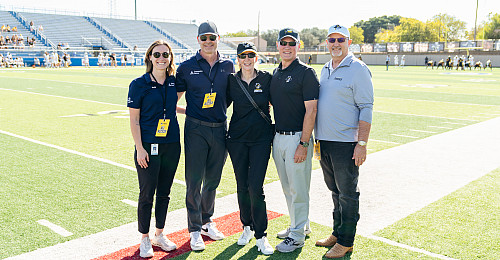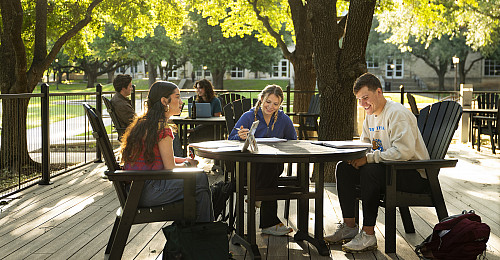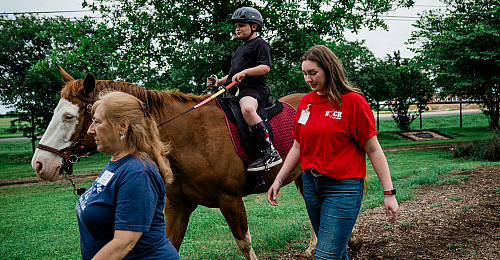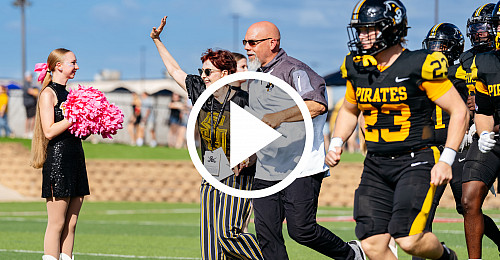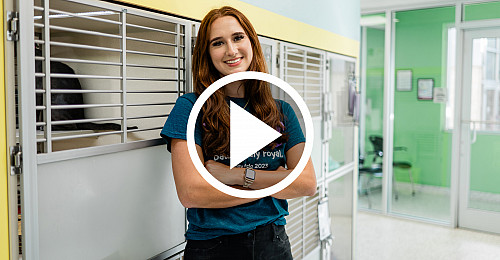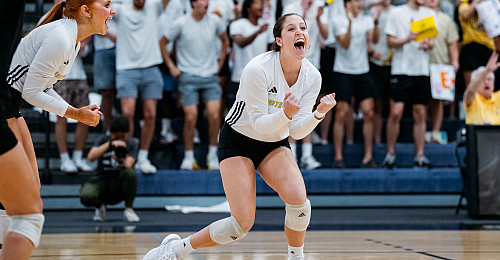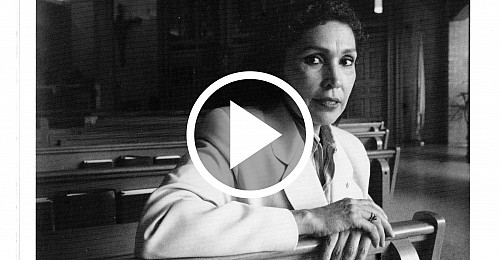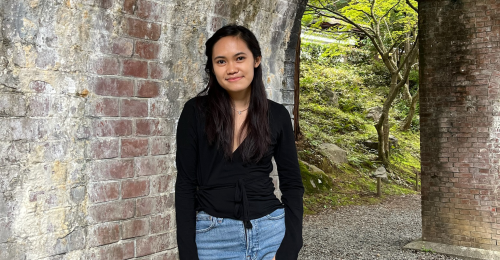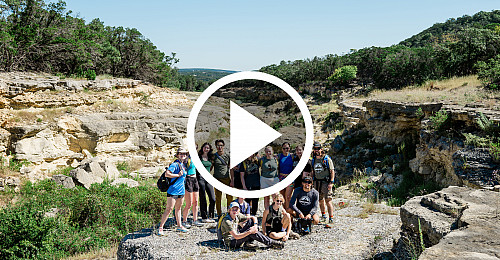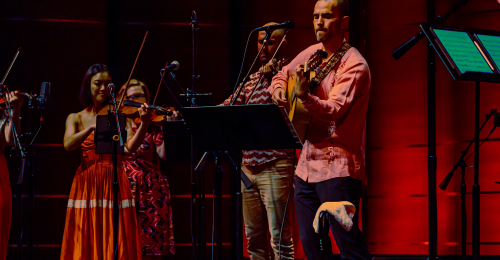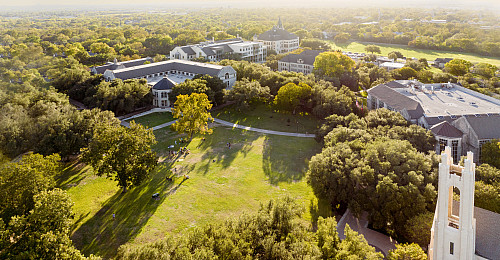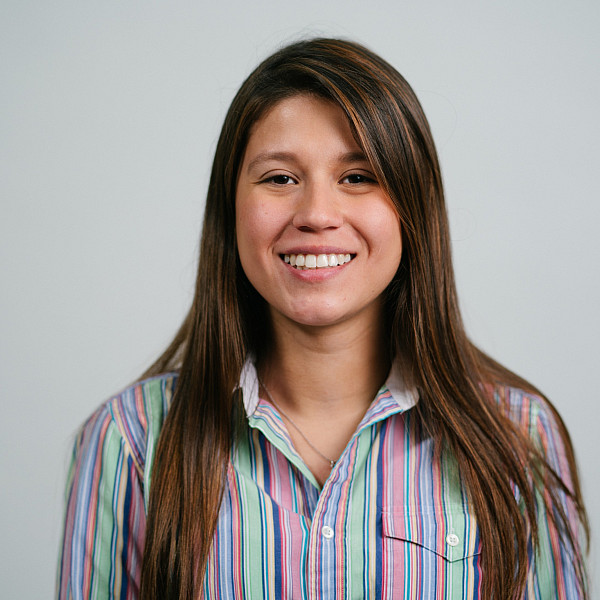News
More than Politics
July 11, 2019
July 11, 2019
Open gallery
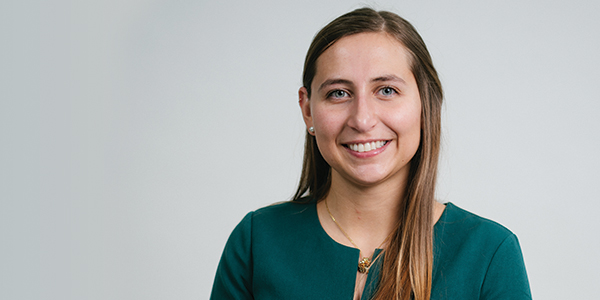
Intertwined majors
Teresa Cropper ’20 began her college career at Southwestern University in the heat of the 2016 presidential election. “I was kind of interested in political science when I came in,” she recalls. “I was following the election a lot, which was fascinating, so I took a class.” The course was Film, Literature, and the Cold War, which included a fair amount of historical context. Meanwhile, she also enrolled in Visiting Assistant Professor Joseph Hower’s Rise of the Right, a course focusing on the history of political conservatism in the U.S. “So it was really funny,” Cropper remembers, “because the history and politics courses were almost flip-flopped.”
Cropper grew more and more interested in studying government and politics. She says that like many students her age, she initially felt pressured to specialize in science, technology, engineering, and mathematics (STEM), so she briefly considered majoring in biology. But she valued her social science classes for improving her skills in reading and writing, and she appreciated learning about how even young citizens can have an impact through such activities as student protests, so she declared political science as one major.
Similarly, she had liked history enough as a student at Churchill High School in San Antonio, but she never planned to major in it because she thought that the career options for historians weren’t exactly “flourishing,” as she puts it. But through classes such as Hower’s course on civil rights, she quickly realized that she was expanding her ability to interpret historical texts in different ways, and by comparing the rhetoric of various political leaders’ speeches, she was learning about the characteristics that define effective communication and governance. Hower helped convince her that those skills would be important regardless of her career path, so she declared a second major. She hasn’t looked back since. “I would not have as much of an understanding of political science without history,” Cropper comments. “I’m glad I decided to pursue history because it’s always interesting and I always learn a lot.”
Civic engagement at and beyond Southwestern
Little did Cropper know that her academic courses of study would soon be complemented by several extracurricular and high-impact experiences on and off campus. In her second semester at Southwestern, she was approached to take over the position of president of the College Democrats, a role she served in for two years (she shared presidential duties for a semester with copresident Olivia Stankus ’20). Cropper admits that the organization survived a few rough patches during her time as leader, but now, the group is “revitalized,” bringing political candidates to campus and raising awareness among students about their campaigns.
“I connect students with civic-engagement events on campus and in the community. I create a weekly blog post with everything that’s happening across the political spectrum, figuring out what’s happening on both sides of the aisle—and what’s in between those sides.”
She’s also served as a community-engaged-learning student associate (CELSA) for three semesters under the mentorship of Assistant Professor of Political Science Emily Sydnor. In her role, Cropper explains, “I connect students with civic-engagement events on campus and in the community. I create a weekly blog post with everything that’s happening across the political spectrum, figuring out what’s happening on both sides of the aisle—and what’s in between those sides.” During the lead-up to the midterm elections in fall 2018, she also published several posts about how to navigate politics, such as how to register to vote and how to acquire mail-in ballots.
Her contributions have been valuable because students often don’t ask important questions about civic engagement; they don’t want to feel embarrassed or believe they risk ostracization for not knowing what they think they should already know. But her service as a CELSA has also helped Cropper herself grow in terms of her communication skills. “I used to just assume people know what I’m talking about,” she acknowledges. “But when I started, I didn’t even realize the differences between local, state, and national politics, so I’ve had to reflect on what I’ve been learning and doing these past two years. Then, I’ve had to learn how to boil that down and present it in a clear way so other people can understand the process and get involved.”
In addition, Cropper was part of the student committees that helped the University win the Texas Voting Summit–Young Invincibles contest for best campus plan for promoting voter turnout and that earned SU its designation as a Voter-Friendly Campus earlier this academic year. She says that increasing voter participation was one welcome outcome of her on-campus efforts. “Seeing the turnout rates of students is rewarding,” she shares. “I probably registered around 50 students to vote, and seeing that and contributing to that was really cool.” And although she knew more about registration and voting than the average college student before she took on these roles, she’s learned even more through her various engagements, such as what forms of voter registration are valid, what forms of identification are acceptable, and what voters are allowed to wear near polling sites. She adds that this is the type of information many citizens simply aren’t familiar with. “Someone who’s working two jobs and has a child doesn’t have time to research and know all that. So it’s important to lay out what you can and can’t do: you need to bring your ID; you can’t wear a campaign shirt within 100 feet of a polling place,” she explains. “We need to get better about removing voting barriers so people can work within the system because right now, it’s working against them.”
Of course, one of the advantages that civically engaged Southwestern students enjoy is living close to the Texas state capital. In January 2018, Cropper started work as a legislative and policy intern for Diego Bernal, the Texas congressman who represents District 123, which includes parts of Balcones Heights, Castle Hills, and San Antonio. Lucy King Brown Chair and Professor of Political Science Eric Selbin connected her to Bernal’s chief of staff. Cropper says that her more recent internship entailed “serving as the representative’s eyes and ears.” For example, she fielded phone calls from Bernal’s constituents and attended meetings in which different groups of citizens, such as music therapists or doctors, would share their concerns or support for specific bills. In addition, she researched bills, helped Bernal decide which ones to support, and wrote memos that eventually became bills. “One bill was on voting rights, and I was tasked with writing a brief about it, garnering support for that bill, and being in charge of it,” she recalls. “I feel really blessed to have that opportunity because the experience was immeasurable.” Having previously interned for State Congressman Lloyd Doggett, Cropper also appreciates having worked “for representatives who actually care” by listening to their constituents. “If you don’t answer the phone, you’re doing your job wrong,” she says.
Having an impact
Cropper thinks that “civic engagement has a lot to do with politics, but it’s more than being involved in politics. It’s trying in some way to better your community through engagement.” She appreciates that Southwestern facilitates civic engagement because college is an ideal time to become more educated about citizenship, and she believes the specific opportunities SU offers aren’t as available at larger universities.
But she does admit that inspiring others to get involved can entail certain challenges. While trying to register students to vote last fall, she did encounter some resistance, especially because some students felt that they were more connected to their hometowns and therefore didn’t want to register locally. However, Cropper persuaded some of those students that they should vote in Georgetown because they live in this community and because “there’s a set of issues that you can help have an impact on wherever you’re engaged.”
The SU junior is almost apologetic as she advocates active participation in democracy. It’s as if she’s slightly embarrassed that she’ll sound like she’s on her soapbox again, but her message rings true: “Civic engagement is really important no matter where you are. We live in a government system in which your voice matters, and we are tasked as citizens—and even as noncitizens who live in this country—to have some control over our lives. Since we have that system of democracy, we have a role to play in that.”




